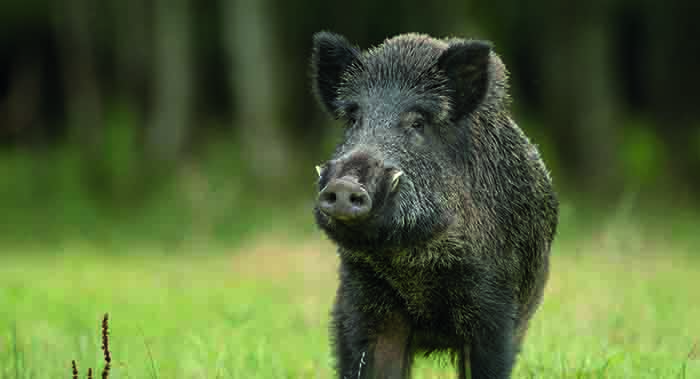Mandy Nevel is AHDB’s senior veterinary manager and a former lecturer at the Royal Veterinary College
I recently gave a talk on African swine fever (ASF) at a veterinary conference at the Moredun Research Institute, in Edinburgh. As I walked into the venue, I was greeted by a large display outlining the role of the UK’s agricultural industry in ‘feeding the world’.
My opening slide at that meeting was a quote from Prof Dirk Pfeiffer, who was the UK’s government adviser during the foot and mouth outbreak: “This [ASF] is the biggest animal disease outbreak we have ever had on the planet.”
ASF is having a massive effect on world pork supplies – it is estimated to have reduced global protein supply by 10%, with similar reductions likely in the next six months. Following the culling in China, much meat has been stored in freezers. However, this is becoming depleted.
In a world where we produce sufficient carbohydrates to feed the world, albeit not evenly distributed, we do not produce enough protein.
Pork accounts for over 40% of the world’s meat protein and, with China until recently producing more than half the world’s pork, the ASF outbreak will mean that, on a global scale, protein will be increasingly hard to source. This will have knock-on effects on soya, wheat and the like.
What will this mean for agriculture on a global scale? I’ll leave that for the economic experts, but I think if it wasn’t so devastating, it would be an interesting time. While the explosive nature of the disease in China could happen here, the UK pig industry is working hard collaboratively to try to ensure it doesn’t.
But it’s not just the explosive outbreaks we need to prevent. It has been shown repeatedly that disease in single animals can be difficult to control. The disease still occurs in wild boar in Belgium in an area that has few commercial pigs because the control of the wild boar is so difficult. It may be insignificant numbers compared with those in Asia, but the disease is still out of control, just as it is in Asia.
Let’s not forget that this disease is mostly spread by humans carrying infected pork products that are somehow fed to pigs. At this time of the year, the start of the university year, the UK will welcome over 100,000 students from Asia. Perhaps they will bring a reminder from home? How can we reduce this risk? Posters at airports can do a bit.
How about we start supplying the market with the products they want, rather than leaving them to bring their own into the UK from home?
Could this be an opportunity? And what about all the replacement animals that Asia will need to restock? Where will they come from?




